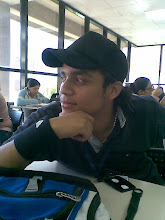1.- 1st Meeting of RoHS Enforcement Bodies Network
In January the UK hosted the first meeting of European RoHS enforcement bodies. Delegates from fifteen countries along with representatives from the Commission and ERA Technology met in London to discuss the content and style of a guidance document for RoHS enforcement. A presentation was given by Paul Goodman from ERA in support of the guide and assisting in identifying materials that represent a higher risk of non-compliance. Rita L’Abbate from the Commission then outlined the need for a consistent approach to “new approach” directives and gave an insight into the Commission’s thinking on market surveillance activities. Richard Frewin from the UK RoHS enforcement agency outlined the policies they are implementing, the technical support they have put in place and asked the other countries to consider adopting a version of the home authority principle in their enforcement.
The home authority principle, whilst in no way restricting individual member states from taking appropriate action, provides a framework of support to multi-national companies. It would allow a company with offices in several member states to build a relationship with one country’s enforcement agency. That agency could never bind other states to its opinions but it provides a forum in which different agencies can discuss the interpretation of the directive and provide the best advice possible to these multinational companies. The principle can lead to greater consistency, co-operation and communication in the delivery of enforcement activities. The meeting was divided into sub groups in which a wide range of issues were discussed, including the use of documentary evidence, screen testing and full analytical testing in a staged approach based on the product risk, what standards are available and how the guide should reference them, what is the most effective way of sharing information and how to ensure consistency when considering the homogenising of low weight materials. These and other issues will structure the agenda for the next meeting which we hope will be hosted by our colleagues in Belgium. On 15th February, the DTI will make a presentation to the Technical Committee of the European Commission, about the guidance document and progress made at this meeting in developing an integrated European approach to the enforcement of RoHS.
2.- Vendor admits to RoHS misconduct
The electronics industry has seen its first prosecution for noncompliance with the RoHS directive.
At the end of September, a U.K. company whose name was not disclosed was accused of marketing lead-containing products that violated the RoHS restrictions on lead, said Chris Smith, head of the RoHS team at the U.K.'s National Weights and Measures Laboratory, which is in charge of compliance testing.
The company admitted guilt and the matter was settled without financial penalty, according to Smith. A documented warning, which can support legal action if the company has further violations, has been filed with the enforcement authorities.
"Effectively, it was an out-of-court settlement, but under U.K. judicial rules it still counts as a case brought to justice," Smith said.
The national lab wouldn't provide further details,because the level of failure wasn't serious enough to warrant public disclosure, he added.
Earlier this year, Denmark nearly had a RoHS prosecution when officials were tipped off by an investigative TV news report on noncompliant disposable cameras. Denmark's Environmental Protection Agency ran its own tests and found some noncompliant units. The importer removed the from the Danish market, and authorities considered the matter resolved, said Torben Norlem, head of RoHS enforcement at Denmark's EPA.
Smith of the British lab said his agency is finding that most electronics products it tests violate the directive's substance restrictions, "but the degrees of failure are small or questionable."
Recurring failures involve lead sneaking into solder that's supposed to be RoHS-compliant. The contamination usually results from a company's running both RoHS and non-RoHS lines. Smith has also found hexavalent chromium on screws, and liquid mercury was found inside a device.
No high-profile RoHS cases have occurred, Smith said, because companies have been cooperative in addressing problems, often with the highest- level executives getting involved.
"Our policy from the beginning has been to work with cooperative companies to meet RoHS objectives rather than get . . . heavy-handed," he said.
The British lab has some compliance advice. The first is to watch outsourcing, because that's where a company tends to lose control of the production process. Second, companies running RoHS and non-RoHS lines should focus attention on preventing cross-contamination.
Another important point is to ensure that personnel are trained to read compliance documents provided by suppliers and third parties.
"We've had several cases where the compliance information demonstrated noncompliance, but the staff was not capable of reading certificates they were presented with," Smith said.
Meanwhile, enforcement is stepping up. The British lab has bought off-the-shelf products--some on the Internet--for testing, Smith said.
And Scandinavian countries are testing products after a massive sweep across Denmark, Sweden and Finland. Officials selected a range of consumer items from 25 categories and are examining them for RoHS violations, Norlem said. Results are expected by December.
